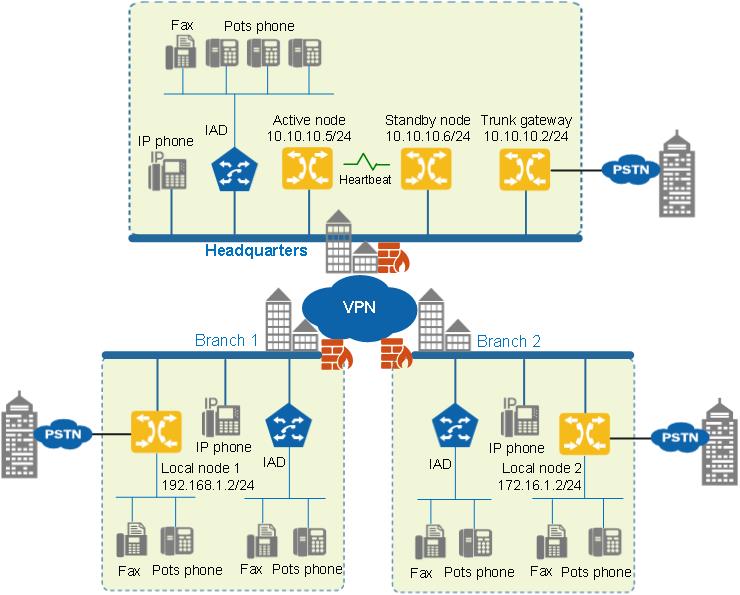Navigation: Fault Management > Troubleshooting Guide > License Faults >
License Classification
UScale X1900 licenses are classified into commercial permanent licenses, temporary licenses, and engineering commissioning licenses. All these licenses can be purchased on the Electronic Software Delivery Platform (ESDP) (at http://app.OpenVox.com/isdp). The application scenario and application method for each license type are as follows:
Commercial permanent license
ϒ⁄A commercial permanent license applies to the scenarios where the customer signs a contract order with OpenVox,including but not limited to the new deployment scenario, capacity expansion scenario, and upgrade scenario.
ϒ⁄A commercial permanent license is delivered and activated based on the normal contract order, without manual approval.
Temporary license
ϒ⁄A temporary license applies to the Proof of Concept (POC) test in market development, brand exhibition, and R&D test before the product launch.
ϒ⁄A temporary license cannot be obtained in the normal contract order process, and manual approval is required.
Engineering commissioning license
ϒ⁄An engineering commissioning license can be applied for in the engineering delivery phase of a project so that the license does not need to be adjusted frequently onsite and the delivery efficiency can be improved. In addition, an engineering commissioning license can be applied for when an emergency occurs and emergency restoration is required.
ϒ⁄An engineering commissioning license can be applied for based on the normal contract order, and manual approval is required.
This document describes the commercial permanent license delivered based on the normal contract order.
Part Numbers for License Sales
Table 1 describes the part number,external name, description, and value range of each salable license control item for the UScale X1900 of different models.
Table 1 Part numbers for license sales
Model |
Part Number |
External Name |
Description |
Value Range |
UScale X1911 |
88031DRY |
U18SVSUBPT02 |
Software Charge,U18SVSUBPT02,VoiceSubscriber Port License(Per Subscriber) |
0~100 |
88031DSA |
UC9SVMALCN01 |
Software Charge,UC9SVMALCN01,Voice MailConcurrent License(2 Path,Per License) |
0~12 |
|
88031DSB |
UC9SVCNSUB01 |
SoftwareCharge,UC9SVCNSUB01,Voice Conference Concurrent Subscribers License |
0~180 |
|
88031DSC |
UC9SCLTSUB01 |
SoftwareCharge,UC9SCLTSUB01,SoftConsole Client Subscriber License |
0~64 |
|
88031DSH |
U18SDISRCY01 |
SoftwareCharge,UC9SDISRCY01,Disaster Recovery Function |
0~1 |
|
88031UWT |
U11SLOCREG02 |
SoftwareCharge,X1911,U11SLOCREG02,X1911 Local Regeneration Function |
0~1 |
|
UScale X1960 |
88031DRY |
U18SVSUBPT02 |
SoftwareCharge,U18SVSUBPT02,Voice Subscriber Port License(Per Subscriber) |
0~1000 |
88031DSA |
UC9SVMALCN01 |
SoftwareCharge,UC9SVMALCN01,Voice Mail Concurrent License(2 Path,Per License) |
0~30 |
|
88031DSB |
UC9SVCNSUB01 |
SoftwareCharge,UC9SVCNSUB01,Voice Conference Concurrent Subscribers License |
0~360 |
|
88031DSC |
UC9SCLTSUB01 |
SoftwareCharge,UC9SCLTSUB01,SoftConsole Client Subscriber License |
0~64 |
|
88031DSF |
U16SLOCREG03 |
SoftwareCharge,X1960,U16SLOCREG03,X1960 Local Regeneration Function |
0~1 |
|
88031DSH |
UC9SDISRCY01 |
SoftwareCharge,UC9SDISRCY01,Disaster Recovery Function |
0~1 |
|
UScale X1981 |
88031DRY |
U18SVSUBPT02 |
SoftwareCharge,U18SVSUBPT02,Voice Subscriber Port License(Per Subscriber) |
V100R001: 0~10000 V200R003: 0~20000 |
88031DSA |
UC9SVMALCN01 |
SoftwareCharge,UC9SVMALCN01,Voice Mail Concurrent License(2 Path,Per License) |
0~30 |
|
88031DSB |
UC9SVCNSUB01 |
SoftwareCharge,UC9SVCNSUB01,Voice Conference Concurrent Subscribers License |
V100R001: 0~360 V200R003: 0~2000 |
|
88031DSC |
UC9SCLTSUB01 |
SoftwareCharge,UC9SCLTSUB01,SoftConsole Client Subscriber License |
0~64 |
|
88031DSH |
UC9SDISRCY01 |
SoftwareCharge,UC9SDISRCY01,Disaster Recovery Function |
0~1 |
|
88032EAC |
U18SLOCREG05 |
SoftwareCharge,U18SLOCREG05,X1981 Local Regeneration Function |
0~1 |
![]()
ϒ⁄Voice user licenses apply to both POTS users and SIP users.
ϒ⁄For theactive/standby two-node cluster or disaster recovery (DR), local regenerationfunction, and open interface platform licenses, value 0 indicates that the function is disabled and value 1 indicates that the function is enabled.
License Purchase Rules
When signing a contract order, purchase licenses for each UScale X1900 based on its functions on the network. The following uses the network shown in Figure 1 as an example, where the central node is deployed in an active/standby two-node cluster.
Figure 1 Network where the central node is deployed in an active/standby two-node cluster

ϒ⁄Trunk gateway: The trunk gateway provides only trunk connections, has no user registered with it, and does not process any services. No license needs to be applied for.
ϒ⁄Active node: The active node processes all services when it runs properly. You can apply for the voice user license,SoftConsole user license, concurrent built-in voice mailbox license, and concurrent voice conference license for the active node based on the site requirements.
ϒ⁄Standby node: When the active node is faulty, the standby node takes over all services. You need to apply for the active/standby two-node cluster license for the standby node.
After the standby node takes over the services, all user licenses are determined by the UScale X1900 specifications of the standby node instead of the licenses on the active node. However, the validity period of the active/standby two-node cluster license on the standby node is 30 days. If the standby node is disconnected from the active node for more than 30 days, the license on the standby node becomes invalid.
After the standby node is reconnected to the active node, the active node takes over all services, and the validity period of the license on the standby node is automatically restored to 30 days.
ϒ⁄Local node: When a local node is disconnected from the central node, the local node takes over services for local users. You need to apply for the local regeneration function license for the local node.
After the local node takes over the services, all user licenses are determined by the UScale X1900 specifications of the local node instead of the licenses on the active node. However, the validity period of the local regeneration function license on the local node is 30 days. If the local node is disconnected from the active node for more than 30 days, the license on the local node becomes invalid.
After the local node is reconnected to the active node, the active node takes over all services, and the validity period of the license on the local node is automatically restored to 30 days.
Parent Topic: License Faults